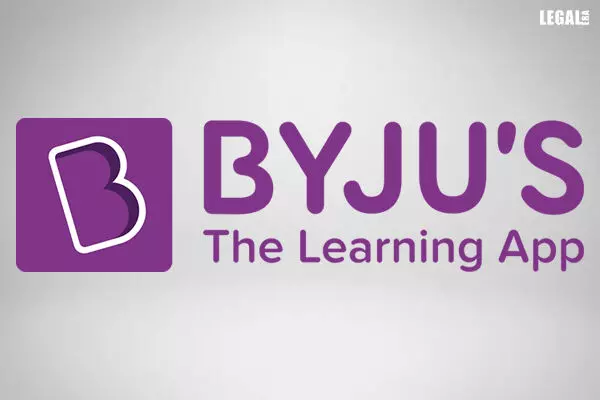- Home
- News
- Articles+
- Aerospace
- AI
- Agriculture
- Alternate Dispute Resolution
- Arbitration & Mediation
- Banking and Finance
- Bankruptcy
- Book Review
- Bribery & Corruption
- Commercial Litigation
- Competition Law
- Conference Reports
- Consumer Products
- Contract
- Corporate Governance
- Corporate Law
- Covid-19
- Cryptocurrency
- Cybersecurity
- Data Protection
- Defence
- Digital Economy
- E-commerce
- Employment Law
- Energy and Natural Resources
- Entertainment and Sports Law
- Environmental Law
- ESG
- FDI
- Food and Beverage
- Gaming
- Health Care
- IBC Diaries
- In Focus
- Inclusion & Diversity
- Insurance Law
- Intellectual Property
- International Law
- IP & Tech Era
- Know the Law
- Labour Laws
- Law & Policy and Regulation
- Litigation
- Litigation Funding
- Manufacturing
- Mergers & Acquisitions
- NFTs
- Privacy
- Private Equity
- Project Finance
- Real Estate
- Risk and Compliance
- Student Corner
- Take On Board
- Tax
- Technology Media and Telecom
- Tributes
- Viewpoint
- Zoom In
- Law Firms
- In-House
- Rankings
- E-Magazine
- Legal Era TV
- Events
- News
- Articles
- Aerospace
- AI
- Agriculture
- Alternate Dispute Resolution
- Arbitration & Mediation
- Banking and Finance
- Bankruptcy
- Book Review
- Bribery & Corruption
- Commercial Litigation
- Competition Law
- Conference Reports
- Consumer Products
- Contract
- Corporate Governance
- Corporate Law
- Covid-19
- Cryptocurrency
- Cybersecurity
- Data Protection
- Defence
- Digital Economy
- E-commerce
- Employment Law
- Energy and Natural Resources
- Entertainment and Sports Law
- Environmental Law
- ESG
- FDI
- Food and Beverage
- Gaming
- Health Care
- IBC Diaries
- In Focus
- Inclusion & Diversity
- Insurance Law
- Intellectual Property
- International Law
- IP & Tech Era
- Know the Law
- Labour Laws
- Law & Policy and Regulation
- Litigation
- Litigation Funding
- Manufacturing
- Mergers & Acquisitions
- NFTs
- Privacy
- Private Equity
- Project Finance
- Real Estate
- Risk and Compliance
- Student Corner
- Take On Board
- Tax
- Technology Media and Telecom
- Tributes
- Viewpoint
- Zoom In
- Law Firms
- In-House
- Rankings
- E-Magazine
- Legal Era TV
- Events
BCCI Retracts Insolvency Petition Against Byju's At NCLT

BCCI Retracts Insolvency Petition Against Byju's At NCLT
The apex court had nullified the NCLAT order allowing a payment settlement between the two entities
The Board of Control for Cricket in India (BCCI) has moved the National Company Law Tribunal (NCLT) to withdraw its insolvency petition against Byju's.
The move follows the recent Supreme Court ruling, which quashed a National Company Law Appellate Tribunal (NCLAT) order that allowed a Rs.158 crore payment settlement between BCCI and Byju's, the embattled ed-tech firm.
Byju's lenders, Glas Trust and Aditya Birla Finance, have opposed BCCI's withdrawal application. The companies sought the removal of the resolution professional (RP) and the reconstitution of the committee of creditors (CoC).
The counsel representing the RP claimed, “The intent of Glas Trust is to cloud these proceedings. If the withdrawal application is considered on merits by the tribunal, orders can be passed. Thereafter, the remedies the firm pursues should be treated separately.”
Meanwhile, the judge suggested that the application must include a bank guarantee, without which it would be considered invalid.
Highlighting that the application was filed without the guarantee due to the urgency of the matter, the counsel said, "I asked the BCCI to give a bank guarantee; they sent an amount on an estimated basis. I said the expenses are more; therefore, you will have to give a bank guarantee.”
Recently, the top court directed that Rs.158 crore, along with accrued interest, which BCCI deposited in a separate escrow account following its 14 August order, should be deposited with the CoC to maintain it until further directions from the NCLT.



